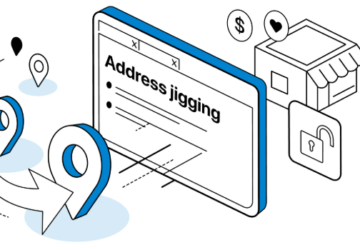Did you know that mobile apps are projected to generate $188.9 billion in revenues via app stores and in-app advertising? iOS and Android being two major players hitting the market every single day is no surprise at all. The stakes are really high!
According to the current stats, both the play stores account for more than 1 million apps each. As a result, more and more companies are seen fighting out with each other to come up with firsthand than others. Now the question is why some mobile applications are more preferred than others? Of course, they are the best among the rest in regards to functionalities and features while others do carry some drawbacks or bugs.
Developing a mobile app, any app whether it’s about the education industry or food and beverages, media & entertainment, travel, e-Commerce industry is an insanely tricky task. And maybe that’s why it is always advisable to seek assistance from a reliable mobile application development company who knows one mistake is good enough to fail tonnes of coding produced after working all day-night long.
However, nobody is perfect and mobile app developers are no exception. Mistakes are inevitable but few mistakes can cost you high time, money, or maybe both in comparison to others. The following emphasizes on those common mistakes so that you have 100% chances of building a successful app.
#1 Not meeting the user experience
Attracting new visitors each day to your app is not an easy task especially when you have so many options around. Different people end up expecting differently. With such a huge set of target audiences around, making an impression in the eyes of every user can be extremely daunting. But it is important though. After all, the first impression is something that should be taken utmost care as it is a stepping stone to your success.
As a user, people usually expect a welcome message followed by an app manual while others simply go for the kill on their own. I must say reaching preferences of every single user is essential and a poor homepage screen won’t be much of a help! In addition to this, do not make your end-users fill long registration forms without letting them know how the app will be useful to them.
Keeping such log registration forms right in the beginning with numerous splash screens is a bad idea and acts more like blocking your way. Well, I am not saying you should just skip the sign in. Try for a routine procedure asking just name and email addresses. For starters, this can certainly work!
#2 Choosing the platform
Many of you often get baffled when it comes to choosing an iOS app or Android app development. Proper planning can save your day in developing a mobile app. Another common yet crucial mistake people end up making is they end up developing their application on all possible platforms at once. Which is not required.
All you have to do is analyze the requirement and market trends beforehand and avoid making such mistakes. For instance, if your target audience is larger in quantity then try building an app on Android because of the same reason. Choosing iOS is applicable if your app users are ready to pay you as the platform is more into in-app payments compared to Android.
#3 Difference between mobile applications and Desktop apps
Most of the mobile app developers have experience in creating desktop applications as well. But this doesn’t mean that it is capable enough to mix the feature requirements, as UX requirements of both app types are different. Also, it is very important to know that creating a mobile app doesn’t mean that you are about to develop a smaller version of a desktop app. Being a professional, it is very important to understand the functionality from the perspective of smartphone users. So basically, not considering the objective of the mobile app as separate to its desktop counterpart is one of the greatest development mistakes you can make.
#4 Not marketing the app
This one is quite interesting actually. I know you must be wondering that the main job of a developer is to build and release on the predetermined app store right? Not really! Releasing your app or game on the app store is not just enough. It is also important for you to market the app and advertise it to your target audience. Even though you aren’t lucky enough to have a separate marketing team then you can think of investing in ads.
In addition to this, you can also think of buying ads from other apps so they would present your app inside their own. However, I wouldn’t suggest this strategy for everyone because of the cost involved. All you can do is consider social media platforms like Facebook, Twitter and so more to promote your app so that thousands of people can discover it.
#5 Being a copy cat
Last but certainly not least is copying ideas from others. Getting inspired and copying has a thin line difference for sure. In addition to this, copying ideas surely falls under intellectual property theft and you could even end up facing legal issues because of copyright infringement.
Try opting for original content and genuine ideas instead of stealing other people’s ideas. In case, if you think a particular app could do better, you can try to create a similar yet better version.
#6 Lack of communication
One of the major reasons why mobile applications fail is a lack of communication during the development process. Most of the professionals suggest that effective communication is extremely important to build a successful mobile app. For this, it is very important to hire a mobile app developer. Now the question is how to address such an issue of improving communication from the beginning.
We do not need unhappy app users because we know that these can cause a serious dent in brand reputation.
#7 Neglecting UI/UX Build
There are times when developers focus on the development process and keep other parameters aside. Neglecting the mobile app UI/UX design of an app is a mistake that needs to be addressed on an urgent basis. Users often have exceptions from the app home screen whereas successful apps have smooth navigation, a search bar, and the home menu. Sometimes developers try to make the UI too creative, which ultimately impacts the user experience. Technically, that’s not incorrect. People can design an app however they want to. But the users become annoyed with the design since it’s not what they are expecting.
#8 Complicated Navigation – No matter what, just make sure that your mobile app must be smooth in regards to navigation and engaging in design. Also, there is a need for proper conversion. In case, if your mobile app navigation is confusing where features are difficult to find or some features are not working properly, users will get frustrated and go to a different app. People prefer using a mobile app having smooth navigation with features that are engaging & unique. Integrating unique features within the mobile app is highly important to engage new and retain existing users.
Conclusion
It’s a wrap! Like any other development project, mobile app development is quite annoying at times and thus, you may end up making a mistake or a two. But if you have appropriate know-how, you can easily avoid them altogether.
Writer note:
Joanna is a Technology Analyst at Tatvasoft Australia – A leading Mobile app development Company in Australia, She has been working for five years in a Technological domain. Her work across multiple disciplines broadly addresses the narratives of techno experience. you can find her on twitter @BarettoJoanna.








